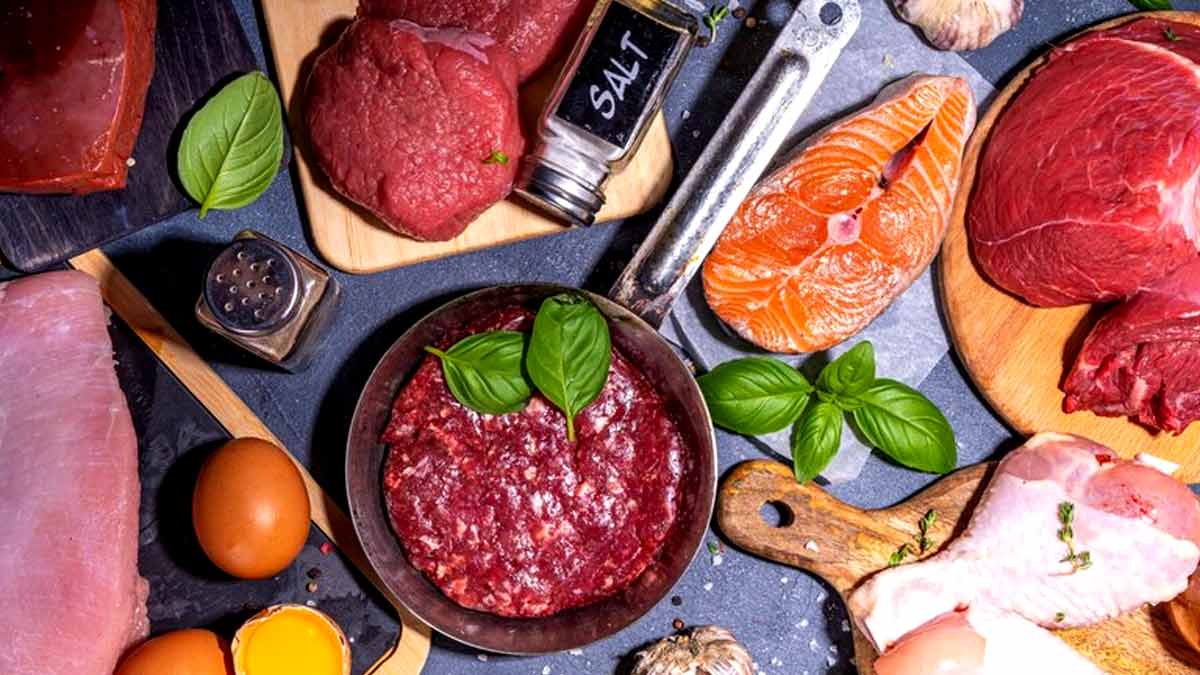
In the realm of unconventional diets, the lion diet stands out as a radical approach that draws inspiration from the carnivorous habits of lions and seeks to address chronic health issues through extreme dietary modifications. This ruminant meat-centric eating pattern eliminates almost all ingredients from the menu, particularly plant-based foods, in an effort to identify and mitigate food sensitivities that may be contributing to autoimmune conditions and other health concerns. To know if this diet has any benefit, we spoke to Sangeetha Aiyer, Metabolic Health Practitioner and Nutrition Coach, Founder - Rewrite Your Story.
The Core of the Lion Diet
"The core premise of the lion diet is simple yet stringent: adherents can consume only salt, water, and meat sourced exclusively from ruminant animals, such as cows, water buffalo, sheep, goats, and deer," said Aiyer. "Positioned as an intensive form of an elimination diet, proponents of the lion diet claim that it holds the potential to heal chronic ailments and elevate the overall quality of life," she added.
"Mikhaila Peterson, who personally attests to the transformative impact of this dietary shift on her health, introduced the Lion Diet," said Aiyer. She said that Peterson's father, the famous Jordan Peterson then followed suit and has multiple times referred to diet as a game changer for his health conditions which include depression, gum disease, and weight loss.

Also Read: Carnivore Diet: Health Benefits And Harmful Effects Of Incorporating It
"As outlined on her website, adherents of this regimen have shared accounts of heightened energy levels, enhanced mental well-being, and alleviation of symptoms linked to digestive and autoimmune disorders," stressed Aiyer.
Official Guidelines to Follow
"There are official guidelines on how to follow the diet. There is no single popular protocol, it has been more of a DIY approach, with diet adherents experimenting with different meal proportions, especially muscle meat and fat from butter, to find a sweet spot that finally helps them alleviate their health concerns. The number of macros derived from protein and fat is also unclear at this point," stated the Aiyer.
"A major factor in this diet is also the emphasis on using grass-fed meat and butter. While the recommendation on this diet seems to encourage the re-introduction of certain foods as per tolerance, most people claim to have poor outcomes when they try to do so, therefore sticking to the protocol in its entirety," highlighted our expert.
She also stated that experts in the field of nutrition, scientists, and the medical fraternity have not supported the diet as there is no research or studies around the same. "The extreme nature of the diet which is very high in saturated fat and the fact that it lacks any diversity may lead to cardiovascular risks and nutritional deficiencies over a period of time," suggested Aiyer.
Does The Lion Diet Have Benefits
"While the diet is not intended specifically for weight loss, followers of this diet experience significant weight loss when they sustain the diet for long periods," said Aiyer. She said that the restrictive nature of the diet eliminates major food sources and calories, especially carbs and sugar, which tend to be energy-dense, resulting in weight loss.

"Another issue is that meat and fat have high satiety, which curbs hunger and allows these dieters to go for long periods of time without eating. However, some nutrition science specialists believe that this technique may lead to undereating calories, which, when combined with nutritional inadequacies, may cause long-term harm," highlighted Aiyer.
"The proponents of this diet also claim to have healed gut and digestive issues, inflammation, and metabolic syndromes, such as type 2 diabetes, and ulcerative colitis," said Aiyer. This may not be a surprise as a study published in the American Journal of Gastroenterology, elimination diets have the potential to be effective for several conditions, such as Irritable Bowel Disease (IBD).
Aiyer explained that one potential explanation could be that by eliminating almost all food sources barring meat, these conditions are in remission and controlled on the lion diet, which can probably be achieved by just identifying the food sources that are potentially known to cause or exaggerate these conditions, rather than going on such a restrictive diet.
Also Read: Smart Dieting: How Indians Can Lose Weight Fast
The Moot Question: Can it be Done in India?
Aiyer said that the simple answer is a resounding no. She said, "Beef, which is one of the ingredients of the diet, for one is banned due to sociocultural political issues and is virtually illegal in many places." "Grass-fed ruminant meat and grass-fed butter are not accessible and unavailable in India. A couple of farms claim to have this but it is prohibitively expensive," she added.
"The medical community does not approve of this diet by any means, therefore when followers of the diet have co-occurring conditions like high cholesterol, extreme diarrhoea, and constipation which are very common in such protocols, these dieters may have to switch the diet or resort to social media and anecdotal advice on managing it, which in many cases can be sub-optimal," she explained.
What are the Options for Indians?
Aiyer said that an animal-based diet coupled with an elimination strategy that aims at identifying food sensitivities may work. "Animal-based diets are those where the significant majority of your caloric intake comes from animal-sourced foods," she explained.
Citing examples, she said that this diet includes foods from red meat, organ meat, poultry, seafood, and eggs. These diets have flexibility and diversity. "Nutrition deficiencies can be well handled on animal-based diets which also have the scope to include dairy, vegetables, and fruits such as berries, and avocado to make it more sustainable depending upon tolerance," she said.
"It is best to work with a qualified nutritionist or a function nutritionist to arrive at an eating pattern that suits your needs. To that extent, nutrition has to be nuanced and a one size fits all approach never works," concluded Aiyer.
[Disclaimer: This article is for informational purposes only. Consult your healthcare provider to get a thorough diagnosis and treatment as per your health needs.]
Image Credits: freepik







